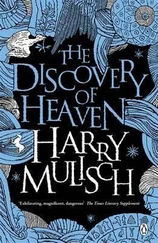They landed at the major transport hall in Eos, Griffith’s hometown, and made their way to his family’s motel. His parents and one sibling remained at the Eos Express Inn, his mother and brother operating the rundown little motel to the best of their abilities while his father, half–paralyzed by stroke, spent his days propped up in their private quarters, watching TV. Griffith introduced his family to Sloane, and promised to repay them the three hundred dollars he’d borrowed three years earlier. His mother in particular noted how “high on themselves” the pair seemed. Sloane in particular “wouldn’t stop talking about New Tahiti. How they were going to go there and stay as long as three months, or maybe forever.” When questioned as to how the pair could afford such an extravagant trip as Sloane proposed, Griffith smiled his big, bright, handsome smile, and told his mother not to worry about it.
The couple spent four nights with Griffith’s family. The first day there they vanished for about an hour, taking their luggage with them. Griffith claimed he wanted to show Sloane around the motel complex. His mother remembered that they had very little baggage despite having been living on another continent for three years and, she noted particularly, almost no clothing. Griffith took showers almost compulsively during his stay in Eos, she recalled, three or four times a day. “And they were tired, both of them,” she maintained. “Slept twelve, fourteen hours that first day.”
On November the thirteenth, Griffith borrowed another four hundred and fifty dollars from his mother and took off, Sloane by his side. She didn’t expect to hear from them again anytime soon, or to see the money she’d given him. “But he’s my son,” she said. “I gave him what I had to give.”
On Tuesday, November thirteenth, at 8.15 am, the secretary at Riccioli High School called the county sheriff, Jamee Philips, to report the continued truancy of the Keck children. The day before Philips had taken a call from Mrs. Hope Goya, the band teacher at Riccioli High, reporting that she and her daughter were concerned about the inexplicably unreachable Keck family. By 9.30 that same morning, Sheriff Philips was pulling up the long, plane tree–shadowed drive that led to Blackacre.
Sloane and Griffith arrived in New Tahiti on Tuesday, November thirteenth, on a 4.32 pm transport. New Tahiti is, as the name suggests, a chain of spectacular resort islands off the coast of the AT, modeled to resemble their eponymous Earth siblings. Although the archipelago, designed and built at astronomical cost in the middle of the twenty–fifth century, is currently in dire economic straights, it was, in 2519, still a compelling vacation destination for a certain socioeconomic class. For Sloane Deeds, who had known only the rocky mountains and endless plains of the IT, New Tahiti represented the greatest achievement of human endeavor. She had dreamed of the turquoise seas and balmy tropical warmth the nights she spent shivering in the Maxwell Montes, imagined herself living in a place where perfectly ripe fruit with names from a fairytale◦– mango, persimmon, breadfruit, cloudberry, starfruit, papaya◦– could be plucked from the trees if she grew hungry. A place where she could spread a blanket across sand as white as sugar and fall asleep in the sun; where she could float among a million tropical fish with extraordinary names: clownfish, manta ray, golden shark, butterfly fish, flying fish, electric eel. For years Sloane had cherished two small notebooks, filled with lists of words: the names of flowers, of constellations, of cities in Europe, in Asia, in Australia. Her handwriting, round and childishly uncertain, began to fade underneath the repeated thumbing of the pages, for she would read her lists to herself, whispering the names, until she had them memorized, and then began again.
Griffith, who liked to read and was proud of his vocabulary, generally spoke to Sloane, as to everyone else, in a mannered and slightly pretentious fashion. He encouraged Sloane’s recitations, telling her that she was a true innocent, a daughter of nature, filled with an unsullied childlike wonder. He would recite poetry to her◦– Kerouac and Tettenar and Ginsberg, Bukowski and Gorail and Khayyam◦– to which she would listen with sparkling eyes, forever uncertain about what such a man could find to love in her. And yet Sloane absorbed Griffith’s gentle condescension, believed him when he told her she was purer than any other girl he’d ever known, that her upbringing, rough as it had been, made her real in a way other people couldn’t ever be◦– people who passed their long, empty days unaware of the preternatural wonder of the Venusian world. “We’re living on a planet that couldn’t support life for billions of years,” he told her one evening. “The days and nights aren’t even real; they’re an lie, a lie within a lie. Everyone here lives these tiny lies all day long, thinking their petty lives and jobs and cares and thoughts and worries matter, and all of that within this one bigger lie. This willful delusion that day and night are the same here as they were on Earth. And all of these things together make them think everything matters. That it all means something, baby. Except we know the truth. We’re the only free ones on this whole planet, because we see through the deception. Every time we look up at the sky we know it’s a lie.
“None of the rest of it matters. Whether they live or die, they don’t matter. We know we don’t matter either. And that gives us freedom none of the rest of them will ever have.”
They were lying on a beach, exactly as Sloane had imagined, a warm breeze washing over them, while they gazed up at the deceiving sky.
“We’re the only ones, baby,” Griffith said. “The only real things on this whole lying planet.”
The front and back doors to the farmhouse was locked, and the windows were unbreakable. Philips had signed out the Keck override key◦– a key to the house that Shelly Keck had deposited for safekeeping at the Hartmann police department, in keeping with local custom◦– before heading out to the farm. It took her only a few moments to get the front door open. She unclipped her holster and put her hand over her gun, then stepped inside.
The front room was neat, and empty. “And it smelled empty,” Philips still recalls. “A little like walking into an antique store. Full of things, but nobody lives there.” Philips called out Shelly’s name softly, then Franz’s, then the names of the children, to no response. She moved slowly into the big dining room, stepping carefully, an intruder in a sacred space. The table was clean and set neatly, awaiting the next meal. Philips moved into the kitchen. There were no dishes in the sink. She used a towel to pull open the dishwasher. It was half–full, and the dishes were dirty. There was no moisture, no humidity emanating from it. It had not been run for several days. Philips closed the dishwasher again. She stepped around the small kitchen table and kicked something. Leaning down, Philips could see a purse◦– Jen’s, she thought, judging from the patches and pins on it◦– lying open and half–hidden in the shadow beneath the table. Philips did not touch it.
She left the kitchen and walked down the long hall to the stairs. There she paused, her hand still hovering over her gun, and listened. There was nothing to hear beyond the settling of the house, the faint whittering of a bird outside. She walked up the stairs slowly, letting each step absorb her weight, carefully and deliberately. She had been to the house before, but never on the second floor. She was not certain of the layout.
The stairs led to a landing illuminated by a large window, curtained with a light and flimsy gauze that let soft, grey daylight through. There was a long hallway, with several doors, all closed. The nearest was one of the children’s; it was festooned with band stickers and warning signs. Philips stopped before it and listened◦– again, nothing◦– then took a pair of latex gloves out of her pocket and pulled them on.
Читать дальше












